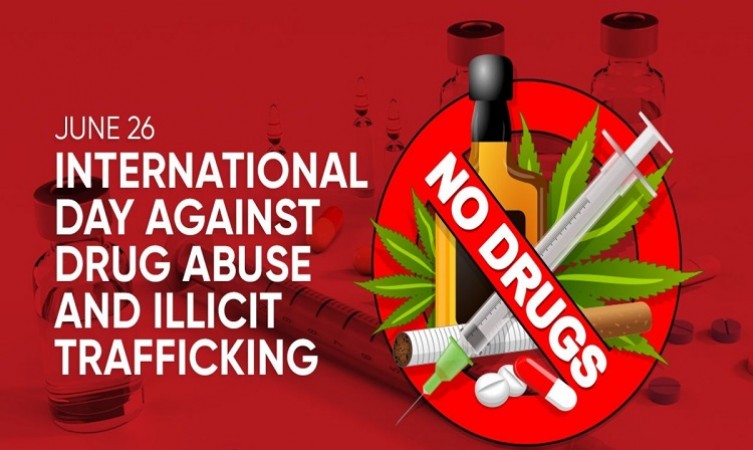
The International Day Against Drug Abuse and Illicit Trafficking is observed annually on June 26th. Established by the United Nations General Assembly in 1987, this day serves as a reminder of the global challenge posed by drug abuse and illicit drug trafficking. It provides an opportunity to raise awareness, promote drug prevention initiatives, and support efforts to combat this pressing issue. This article delves into the significance of this observance and highlights key strategies to address drug abuse and illicit drug trafficking.
Drug abuse refers to the excessive and harmful use of substances, both legal and illegal, that can have severe physical, psychological, and social consequences. Substance abuse can encompass various drugs, including but not limited to opioids, stimulants, sedatives, cannabis, and hallucinogens. It affects individuals of all ages, genders, and socioeconomic backgrounds, leading to numerous health and social problems.
Illicit drug trafficking, on the other hand, involves the production, distribution, and sale of illegal drugs. It perpetuates the cycle of drug abuse and poses a significant threat to public health and safety worldwide. Drug trafficking networks operate across borders, undermining societal stability, fueling organized crime, and contributing to corruption and violence. The illicit drug trade generates vast profits, which are often used to fund other criminal activities.
Preventing drug abuse begins with education and awareness. Governments, communities, schools, and families play crucial roles in disseminating accurate information about the dangers of drug abuse and promoting healthy lifestyles. Prevention programs should focus on building resilience, life skills, and providing support networks to individuals, particularly vulnerable populations such as youth, who are at higher risk of succumbing to drug abuse.
For those already grappling with drug addiction, access to comprehensive treatment and rehabilitation services is vital. Effective treatment approaches may include a combination of behavioral therapies, medication-assisted treatment, counseling, and support groups. The promotion of harm reduction strategies, such as needle exchange programs and opioid substitution therapy, can also save lives and reduce the negative consequences of drug abuse.
Addressing drug abuse and illicit drug trafficking requires strong international cooperation among governments, law enforcement agencies, and international organizations. Collaborative efforts are needed to disrupt drug supply chains, dismantle criminal networks, and improve border control measures. Sharing intelligence, resources, and expertise is essential in tackling this global menace.
Efforts to combat drug abuse and illicit drug trafficking should focus on both reducing demand and supply. Reducing demand involves implementing prevention programs, raising awareness, and providing treatment and support to those in need. On the supply side, governments must strengthen law enforcement, enhance interagency coordination, and work with international partners to dismantle drug trafficking networks, disrupt drug production, and seize illicit drugs.
The International Day Against Drug Abuse and Illicit Trafficking serves as a reminder of the urgent need to address drug abuse and illicit drug trafficking globally. It emphasizes the importance of prevention, education, treatment, and law enforcement in curbing this multifaceted problem. By joining hands and working together, we can create a world where individuals are empowered to make healthy choices, and societies are free from the devastating impact of drug abuse and illicit drug trade. Let us mark this day as a catalyst for change and recommit ourselves to building a brighter, drug-free future.